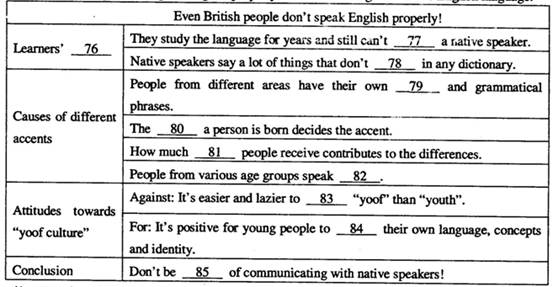
科目: 來源:不詳 題型:完形填空
查看答案和解析>>
科目: 來源:不詳 題型:閱讀理解
查看答案和解析>>
科目: 來源:不詳 題型:完形填空
| A.Fine. That leaves me plenty of time to pick them up after work. |
| B.I want to have these clothes cleaned and pressed. |
| C.Good. Thank you. |
| D.How much is it? |
查看答案和解析>>
科目: 來源:不詳 題型:完形填空

查看答案和解析>>
科目: 來源:不詳 題型:完形填空
查看答案和解析>>
科目: 來源:不詳 題型:閱讀理解
查看答案和解析>>
科目: 來源:不詳 題型:閱讀理解
查看答案和解析>>
科目: 來源:不詳 題型:完形填空
查看答案和解析>>
科目: 來源:不詳 題型:閱讀理解
 The hardest part, Joachim said on Live With Regis and Kelly, was “I couldn’t watch the people” — the many waving passers-by on the street outside the ABC studio.
The hardest part, Joachim said on Live With Regis and Kelly, was “I couldn’t watch the people” — the many waving passers-by on the street outside the ABC studio.查看答案和解析>>
科目: 來源:不詳 題型:閱讀理解
 C. pay the policemen D. meet the news reporters
C. pay the policemen D. meet the news reporters查看答案和解析>>
湖北省互聯(lián)網(wǎng)違法和不良信息舉報平臺 | 網(wǎng)上有害信息舉報專區(qū) | 電信詐騙舉報專區(qū) | 涉歷史虛無主義有害信息舉報專區(qū) | 涉企侵權(quán)舉報專區(qū)
違法和不良信息舉報電話:027-86699610 舉報郵箱:58377363@163.com